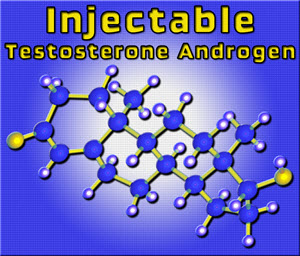Introduction
Chronic illnesses pose significant challenges to individuals, affecting various aspects of their lives, including their sexual health. Among American men, one of the less discussed yet prevalent issues is the development of soft erections, also known as erectile dysfunction (ED). This article explores the intricate relationship between chronic illnesses and the occurrence of soft erections, shedding light on the underlying mechanisms and potential interventions to improve the quality of life for affected individuals.
The Prevalence of Chronic Illnesses Among American Men
Chronic conditions such as diabetes, cardiovascular diseases, and hypertension are alarmingly common among American men. According to the Centers for Disease Control and Prevention (CDC), nearly half of all adults in the United States suffer from at least one chronic illness, with men being particularly susceptible to certain conditions. These diseases not only impact overall health but also have a profound effect on sexual function, contributing to the development of soft erections.
Mechanisms Linking Chronic Illness to Soft Erections
The pathophysiology of soft erections in the context of chronic illnesses is multifaceted. Diabetes, for instance, can lead to nerve damage and poor blood circulation, both of which are critical for achieving and maintaining an erection. Similarly, cardiovascular diseases impair blood flow to the penis, making it difficult to achieve a firm erection. Hypertension, often treated with medications that have sexual side effects, further complicates the issue. Understanding these mechanisms is crucial for developing effective treatment strategies.
Impact on Quality of Life
The psychological and emotional toll of experiencing soft erections due to chronic illness cannot be overstated. Many men report feelings of inadequacy, frustration, and decreased self-esteem, which can strain relationships and lead to social isolation. The ripple effect on mental health underscores the need for comprehensive care that addresses both the physical and emotional aspects of this condition.
Current Treatment Approaches
Managing soft erections in men with chronic illnesses involves a multidisciplinary approach. Lifestyle modifications, such as adopting a healthy diet, regular exercise, and smoking cessation, are foundational. Medical interventions may include medications to manage the underlying chronic condition and improve blood flow, such as phosphodiesterase type 5 inhibitors (e.g., sildenafil). In some cases, more invasive treatments like penile implants may be considered.
The Role of Psychological Support
Psychological support is a vital component of treatment. Counseling and therapy can help men cope with the emotional impact of soft erections and improve their overall well-being. Support groups provide a platform for sharing experiences and strategies for managing the condition, fostering a sense of community and understanding.
Future Directions in Research and Treatment
Ongoing research aims to better understand the complex interplay between chronic illnesses and sexual dysfunction. Innovations in pharmacology and technology, such as new drug formulations and devices, hold promise for more effective treatments. Additionally, increased awareness and education about the link between chronic illnesses and soft erections can lead to earlier interventions and better outcomes.
Conclusion
Chronic illnesses significantly contribute to the development of soft erections among American men, affecting their sexual health and overall quality of life. By understanding the mechanisms behind this condition and adopting a holistic approach to treatment, healthcare providers can offer more effective support to those affected. As research continues to advance, there is hope for improved management and treatment options, ultimately enhancing the lives of countless men across the nation.
Contact Us Today For A Free Consultation

- Demystifying the Enigma of Soft Erections: A Comprehensive Guide [Last Updated On: February 25th, 2025] [Originally Added On: February 25th, 2025]
- Exploring the Mind-Body Connection: Harnessing Meditation and Mindfulness for Enhanced Erections [Last Updated On: February 25th, 2025] [Originally Added On: February 25th, 2025]
- Understanding Male Potency: Deciphering the Science behind Erectile Dysfunction [Last Updated On: February 26th, 2025] [Originally Added On: February 26th, 2025]
- Masculinity Reenvisioned: Soft Erections as an Emblem of Strength [Last Updated On: February 27th, 2025] [Originally Added On: February 27th, 2025]
- Revitalizing Virility: Lifestyle Rewiring for Enhanced Erectile Potential [Last Updated On: February 28th, 2025] [Originally Added On: February 28th, 2025]
- Whispering Battles: An Introspection into the Private Struggles with Erectile Dysfunction [Last Updated On: February 28th, 2025] [Originally Added On: February 28th, 2025]
- Unraveling the Stress Matrix: Decoding the Impact of Psychological Stress on Erectile Function [Last Updated On: March 1st, 2025] [Originally Added On: March 1st, 2025]
- Unveiling the Hidden Struggles: A Comprehensive Overview of Erectile Dysfunction [Last Updated On: March 2nd, 2025] [Originally Added On: March 2nd, 2025]
- Soft Erections in Aging Men: Causes, Diagnosis, and Treatment Options [Last Updated On: March 3rd, 2025] [Originally Added On: March 3rd, 2025]
- Enhancing Erectile Function Through Exercise: Understanding Its Physiological and Psychological Benefits [Last Updated On: March 3rd, 2025] [Originally Added On: March 3rd, 2025]
- Exploring Diet's Impact on Erectile Function and Health [Last Updated On: March 4th, 2025] [Originally Added On: March 4th, 2025]
- Exploring the Crucial Role of Sleep in Enhancing Male Erectile Function and Health [Last Updated On: March 5th, 2025] [Originally Added On: March 5th, 2025]
- Understanding and Managing Erectile Dysfunction: Causes, Treatments, and Lifestyle Changes [Last Updated On: March 6th, 2025] [Originally Added On: March 6th, 2025]
- Optimizing Hormonal Balance for Erectile Health: A Comprehensive Guide for Men's Well-being [Last Updated On: March 7th, 2025] [Originally Added On: March 7th, 2025]
- The Crucial Link Between Vascular Health and Erectile Function: A Comprehensive Exploration [Last Updated On: March 8th, 2025] [Originally Added On: March 8th, 2025]
- The Holistic Connection: Erectile Dysfunction as a Reflection of Overall Men's Health [Last Updated On: March 9th, 2025] [Originally Added On: March 9th, 2025]
- From Flab to Firm: How Weight Loss Can Enhance Male Sexual Health and Combat Soft Erections [Last Updated On: March 9th, 2025] [Originally Added On: March 9th, 2025]
- Debunking Myths: Understanding Soft Erections and Effective ED Treatments for American Men [Last Updated On: March 12th, 2025] [Originally Added On: March 12th, 2025]
- Understanding the Impact of Medications on Male Sexual Health: Navigating Drug-Induced Soft Erections [Last Updated On: March 13th, 2025] [Originally Added On: March 13th, 2025]
- Stress and Soft Erections: Understanding Impacts and Effective Management Strategies [Last Updated On: March 15th, 2025] [Originally Added On: March 15th, 2025]
- Vitamins and Minerals: Enhancing Male Sexual Health and Erection Quality [Last Updated On: March 16th, 2025] [Originally Added On: March 16th, 2025]
- Counseling's Role in Overcoming Soft Erections: A Holistic Approach [Last Updated On: March 18th, 2025] [Originally Added On: March 18th, 2025]
- Smoking's Impact on American Males' Erectile Health and Benefits of Quitting [Last Updated On: March 18th, 2025] [Originally Added On: March 18th, 2025]
- Herbal Remedies for Enhancing Erectile Function in American Males [Last Updated On: March 19th, 2025] [Originally Added On: March 19th, 2025]
- Understanding and Managing Soft Erections: Causes, Treatments, and Prevention Strategies [Last Updated On: March 19th, 2025] [Originally Added On: March 19th, 2025]
- Soft Erections in Young Men: Causes, Solutions, and Importance of Professional Help [Last Updated On: March 19th, 2025] [Originally Added On: March 19th, 2025]
- Addressing Soft Erections: Communication and Collaborative Strategies for Couples [Last Updated On: March 20th, 2025] [Originally Added On: March 20th, 2025]
- Alcohol's Impact on Erection Quality: Strategies for Optimal Sexual Health [Last Updated On: March 20th, 2025] [Originally Added On: March 20th, 2025]
- Work Stress and Erectile Dysfunction: Impacts and Management Strategies for American Men [Last Updated On: March 20th, 2025] [Originally Added On: March 20th, 2025]
- Diagnosing Soft Erections: Comprehensive Approaches for American Males' Urological Health [Last Updated On: March 21st, 2025] [Originally Added On: March 21st, 2025]
- Pelvic Floor Exercises: Enhancing Erection Quality and Overall Health in American Males [Last Updated On: March 21st, 2025] [Originally Added On: March 21st, 2025]
- Enhancing Male Sexual Health: Diet, Exercise, and Lifestyle Strategies for Strong Erections [Last Updated On: March 22nd, 2025] [Originally Added On: March 22nd, 2025]
- Economic Impacts of Erectile Dysfunction on American Men: Costs, Productivity, and Relationships [Last Updated On: March 23rd, 2025] [Originally Added On: March 23rd, 2025]
- Understanding Soft Erections: Causes, Impacts, and Strategies for Sexual Confidence [Last Updated On: March 23rd, 2025] [Originally Added On: March 23rd, 2025]
- Chronic Inflammation's Impact on Sexual Health: Mechanisms and Management Strategies [Last Updated On: March 23rd, 2025] [Originally Added On: March 23rd, 2025]
- Overcoming Soft Erections: From Frustration to Fulfillment with Medical and Lifestyle Solutions [Last Updated On: March 23rd, 2025] [Originally Added On: March 23rd, 2025]
- Innovative Devices and Holistic Approaches for Managing Soft Erections and ED [Last Updated On: March 23rd, 2025] [Originally Added On: March 23rd, 2025]
- Soft Erections: Understanding, Impact, and Building Intimacy in Relationships [Last Updated On: March 24th, 2025] [Originally Added On: March 24th, 2025]
- Cardiovascular Health's Impact on Erectile Function and Soft Erections in Men [Last Updated On: March 24th, 2025] [Originally Added On: March 24th, 2025]
- Alternative Medicine and Acupuncture for Enhancing Erectile Health in American Males [Last Updated On: March 24th, 2025] [Originally Added On: March 24th, 2025]
- Managing Soft Erections: Lifestyle and Psychological Strategies for American Men [Last Updated On: March 24th, 2025] [Originally Added On: March 24th, 2025]
- Managing Soft Erections: Understanding Causes, Preparing for Doctor Visits, and Exploring Treatments [Last Updated On: March 24th, 2025] [Originally Added On: March 24th, 2025]
- Mindfulness Techniques for Managing Soft Erections in American Men [Last Updated On: March 24th, 2025] [Originally Added On: March 24th, 2025]
- Soft Erections and Self-Esteem: Psychological Strategies for American Men [Last Updated On: March 24th, 2025] [Originally Added On: March 24th, 2025]
- Superfoods Boost Vascular Health, Enhance Erection Quality: Dark Chocolate, Walnuts, More [Last Updated On: March 24th, 2025] [Originally Added On: March 24th, 2025]
- Prostate Health and Soft Erections: Understanding and Managing the Connection [Last Updated On: March 24th, 2025] [Originally Added On: March 24th, 2025]
- Digital Health Tools for Managing Soft Erections in American Men [Last Updated On: March 24th, 2025] [Originally Added On: March 24th, 2025]
- Exploring Alternative Therapies for Erectile Dysfunction in American Men [Last Updated On: March 25th, 2025] [Originally Added On: March 25th, 2025]
- Physical Therapy: A Promising Solution for Soft Erections and Erectile Dysfunction [Last Updated On: March 25th, 2025] [Originally Added On: March 25th, 2025]
- Environmental Toxins and Their Impact on Male Sexual Health: Understanding Soft Erections [Last Updated On: March 25th, 2025] [Originally Added On: March 25th, 2025]
- Obesity and Soft Erections: Enhancing Sexual Health Through Weight Management [Last Updated On: March 25th, 2025] [Originally Added On: March 25th, 2025]
- Understanding Soft Erections: Causes, Impacts, and Management Strategies for American Males [Last Updated On: March 25th, 2025] [Originally Added On: March 25th, 2025]
- PDE5 Inhibitors: A Targeted Solution for Soft Erections and ED Management [Last Updated On: March 25th, 2025] [Originally Added On: March 25th, 2025]
- Innovative Technologies Transforming Erectile Dysfunction Treatment in American Males [Last Updated On: March 25th, 2025] [Originally Added On: March 25th, 2025]
- Hormonal Balance: Key to Enhancing Erectile Strength in American Men [Last Updated On: March 25th, 2025] [Originally Added On: March 25th, 2025]
- Soft Erections in American Males: Impact of Anxiety, Depression, and Holistic Treatment Approaches [Last Updated On: March 25th, 2025] [Originally Added On: March 25th, 2025]
- Nitric Oxide's Role in Enhancing Erections: Mechanisms and Strategies [Last Updated On: March 25th, 2025] [Originally Added On: March 25th, 2025]
- Understanding Soft Erections: Causes, Mechanisms, and Treatment Options for American Males [Last Updated On: March 26th, 2025] [Originally Added On: March 26th, 2025]
- Understanding Soft Erections: Causes, Treatments, and Breaking Stereotypes in American Men [Last Updated On: March 26th, 2025] [Originally Added On: March 26th, 2025]
- Soft Erections and Metabolic Syndrome: Causes, Implications, and Management for American Males [Last Updated On: March 26th, 2025] [Originally Added On: March 26th, 2025]
- Sedentary Lifestyles and Erection Health: The Importance of Physical Activity [Last Updated On: March 26th, 2025] [Originally Added On: March 26th, 2025]
- Genetic and Epigenetic Influences on Erectile Dysfunction: A Comprehensive Overview [Last Updated On: March 26th, 2025] [Originally Added On: March 26th, 2025]
- Soft Erections vs. Erectile Dysfunction: Causes, Impacts, and Treatments for American Men [Last Updated On: March 26th, 2025] [Originally Added On: March 26th, 2025]
- Medications Causing Soft Erections: Causes, Identification, and Management Strategies [Last Updated On: March 26th, 2025] [Originally Added On: March 26th, 2025]
- Biofeedback: A Non-Invasive Solution for Enhancing Erectile Control in American Males [Last Updated On: March 27th, 2025] [Originally Added On: March 27th, 2025]
- Enhancing Sexual Stamina: Techniques for Managing Soft Erections in American Men [Last Updated On: March 27th, 2025] [Originally Added On: March 27th, 2025]
- Sleep Disorders and Soft Erections: Impact on American Males' Sexual Health [Last Updated On: March 28th, 2025] [Originally Added On: March 28th, 2025]
- Cardiovascular Exercise Boosts Erection Quality in American Men [Last Updated On: March 29th, 2025] [Originally Added On: March 29th, 2025]
- Stress Management Techniques to Improve Erectile Function in American Men [Last Updated On: March 30th, 2025] [Originally Added On: March 30th, 2025]
- Redefining Masculinity: Embracing Soft Erections and Enhancing Sexual Confidence [Last Updated On: March 30th, 2025] [Originally Added On: March 30th, 2025]
- Understanding and Treating Soft Erections: Causes, Therapies, and Surgical Options [Last Updated On: March 31st, 2025] [Originally Added On: March 31st, 2025]
- Soft Erections: Understanding, Impact, and Solutions for American Men [Last Updated On: April 2nd, 2025] [Originally Added On: April 2nd, 2025]
- Nerve Health's Crucial Role in Enhancing Erectile Function for American Men [Last Updated On: April 2nd, 2025] [Originally Added On: April 2nd, 2025]
- Innovative Research and Technologies Transforming Soft Erection Treatment [Last Updated On: April 3rd, 2025] [Originally Added On: April 3rd, 2025]
- Lifestyle Overhauls Boost Erection Quality: Diet, Exercise, and Health Management [Last Updated On: April 5th, 2025] [Originally Added On: April 5th, 2025]
- Cortisol's Impact on Erectile Dysfunction: Managing Stress for Better Sexual Health [Last Updated On: April 6th, 2025] [Originally Added On: April 6th, 2025]
- Breaking Barriers: Discussing Soft Erections and ED Among American Men [Last Updated On: April 8th, 2025] [Originally Added On: April 8th, 2025]
- Natural Aphrodisiacs: Exploring Their Impact on Male Sexual Health and ED [Last Updated On: April 8th, 2025] [Originally Added On: April 8th, 2025]
- Holistic Strategies for Enhancing Male Sexual Performance and Erection Quality [Last Updated On: April 9th, 2025] [Originally Added On: April 9th, 2025]
- Soft Erections: Physical, Psychological, and Social Impacts on American Men [Last Updated On: April 10th, 2025] [Originally Added On: April 10th, 2025]
Word Count: 551




















